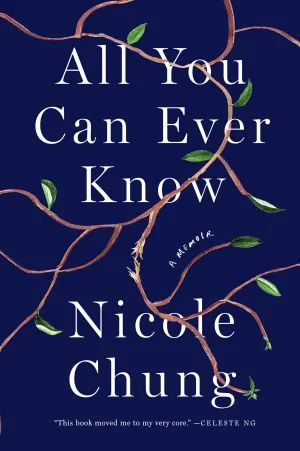
But I never wanted to give you away were the words I’d always wanted to hear from her, from my birth father. It was the closest I’d ever come to being told one of them wanted me.
Family lore given to us as children has such hold over us, such staying power. It can form the bedrock of another kind of faith, one to rival any religion, informing our beliefs about ourselves, and our families, and our place in the world.
All members of a family have their own ways of defining the others. All parents have ways of saying things about their children as if they are indisputable facts, even when the children don’t believe them to be true at all. It’s why so many of us sometimes feel alone or unseen, despite the real love we have for our families and they for us.
The stories I wrote throughout my grade school years were sites for my fledgling dreams of belonging. These invented worlds were another kind of refuge, but for a long time I had trouble locating myself in my own creations. Even when I was at my freest and most imaginative, peering beyond the limits of my own lived reality, I couldn’t picture someone like me at the center of the story. When I tried to write novels, sprawled on my bed with a ballpoint pen and spiral notebook, I imagined girls who outsmarted grown-ups and rescued their best friends from kidnappers, girls who raced in the Iditarod and girls who traveled to worlds far beyond our galaxy—girls who were always white. To be a hero, I thought, you had to be beautiful and adored. To be beautiful and adored, you had to be white. That there were millions of Asian girls like me out there in the world, starring in their own dramas large and small, had not yet occurred to me, as I had neither lived nor seen it.
No matter how a child joins your family, their presence changes all the rules; they move into your heart and build new rooms, knock down walls you never knew existed. This is why new parents crave reassurance more than anything else: We tell ourselves, and want others to tell us, that we’re going to be wonderful parents. That our children will be happy. That their suffering will be light—or at least, never of a kind we cannot help them through. We have to believe these things, promise ourselves we’ll meet every challenge, or we’d never be brave enough to begin.
My family’s devout Catholic faith had often functioned as a kind of substitute for the Korean heritage I had lost, and I was very much under its sway: from Nativity plays and Lenten soup suppers to the holy cards stuffed in my Bible and the tiny cross my mother traced on my forehead before I went to school, there was rhythm and ritual in my Catholic upbringing, a sense of purpose and interconnectedness. I had long found comfort in it.
This realization welled up, overflowing in another discovery: I had nothing to prove any longer. Even if I still felt the need to assert my love for my adoptive parents, or defend my family to people who had no idea how it felt or what it meant to be adopted, that did not mean I had to forever deny all interest in the people who’d given me life. It was time to lay down the burden of being “the good adoptee,” the grateful little girl who’d been lost and then found. Who cared what anyone thought of my decision? Who cared about their questions?
I had told him so many times that I did not hold my adoption against him. But even two years after our first correspondence, his letters to me were filled with regret. He held it against himself, and I did not want him to. How strange, yet not strange at all, that I felt the same urge to protect him that I’d felt toward my adoptive parents. Perhaps it was a sign of how much I already cared about him. Was there some magical, inspired phrase I could snatch out of the stifled air between us, something I could say that would make him lay his guilt to rest, once and for all?
Though I’ve sometimes grieved for absent solidarity, now that I am raising children of color in a starkly divided America I feel, even more strongly, that maintaining my silence with my relatives—pretending my race does not matter—is no longer a choice I can make. It feels like my duty as my white family’s de facto Asian ambassador to remind them that I am not white, that we do experience this country in different ways because of it, that many people still know oppression far more insidious and harmful than anything I’ve ever faced. Every time I do this, I am breaching the sacred pact of our family, our once-shared belief that my race is irrelevant in the presence of their love. But withholding hard truths and my honest opinions would also sell short the love I have for them, and they for me. The fierce wish I still harbor for them to understand me for who I am, stand with me in love and full acceptance, persists because they chose me and they raised me: we are one another’s responsibility.